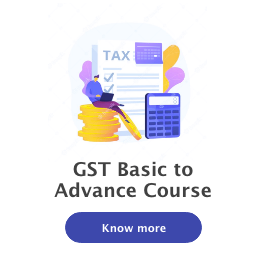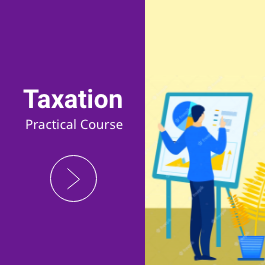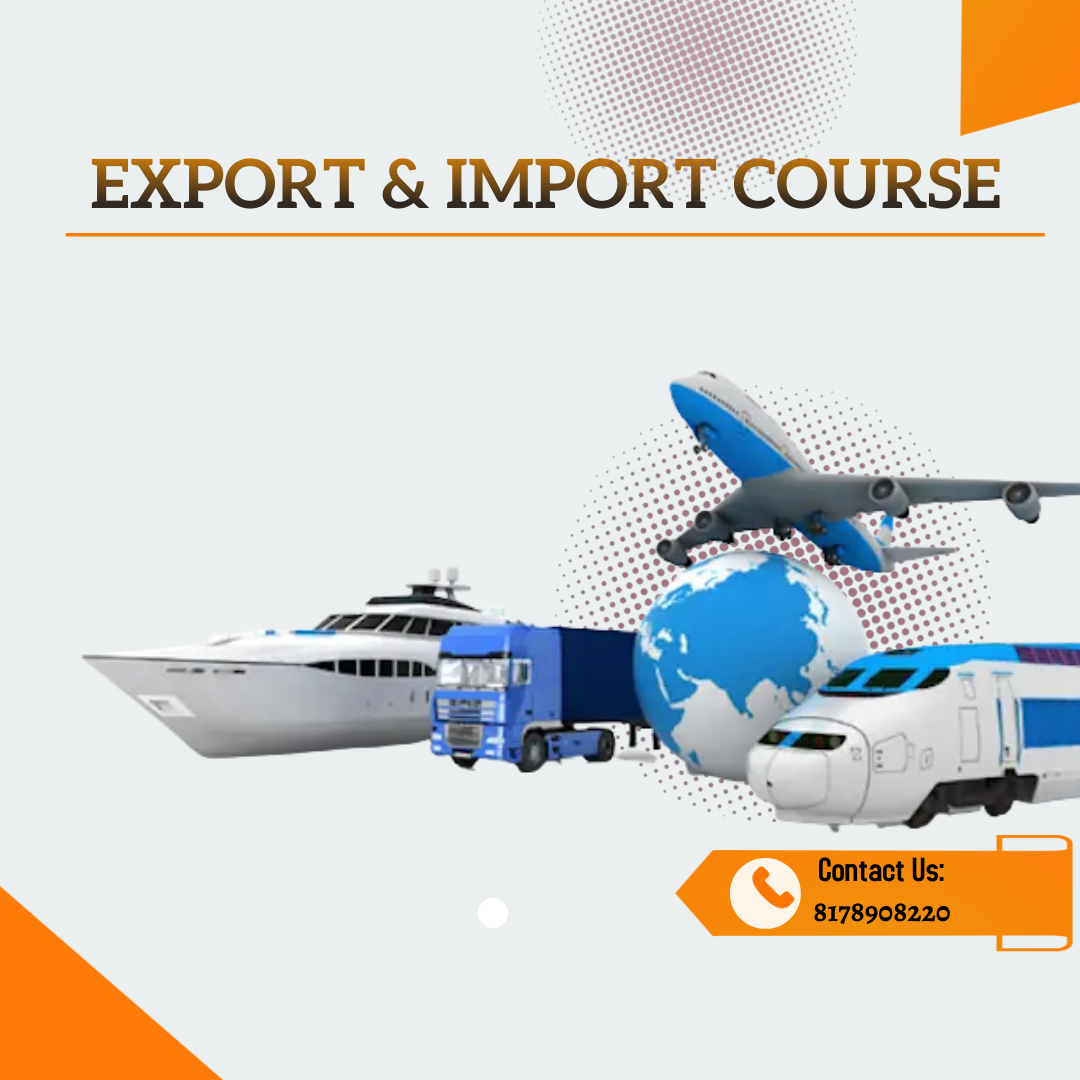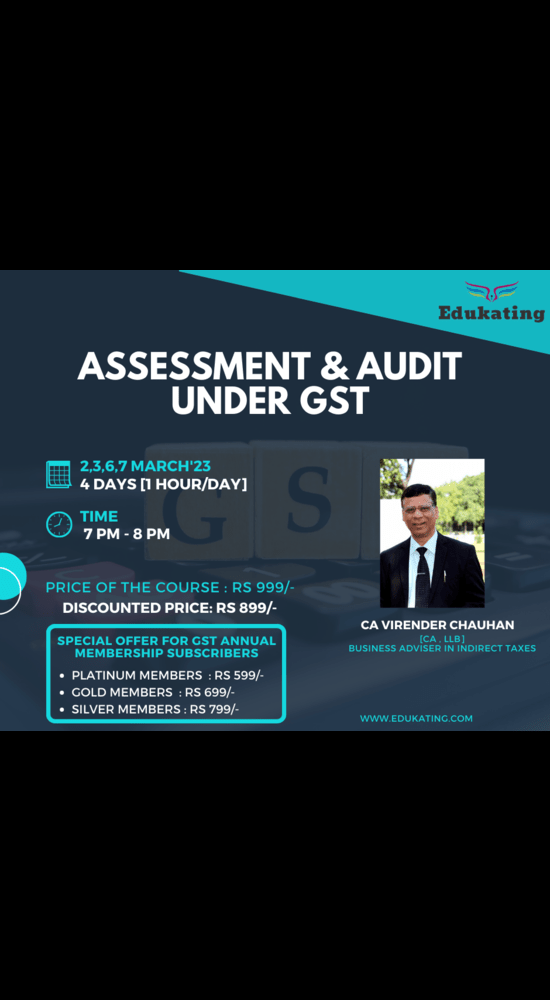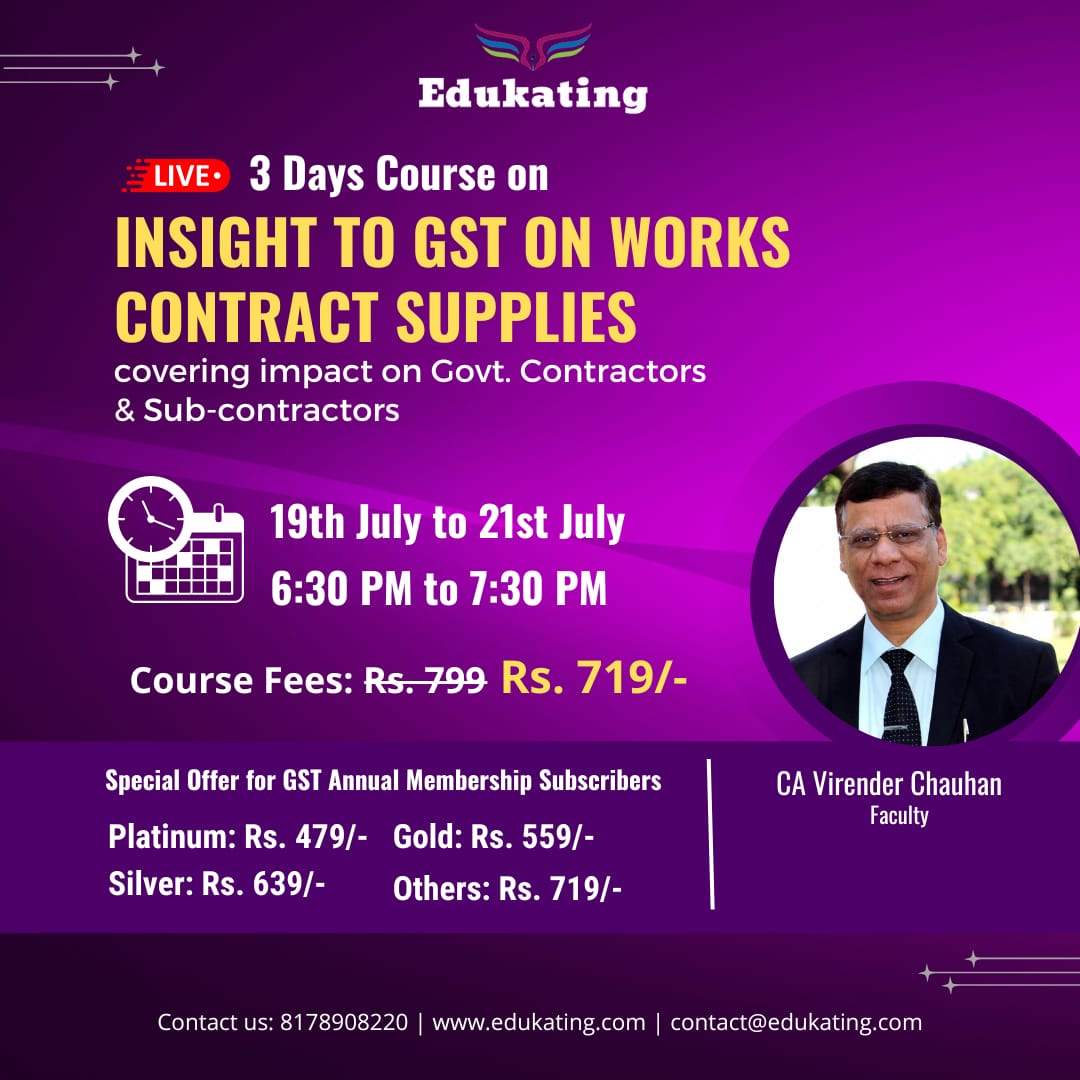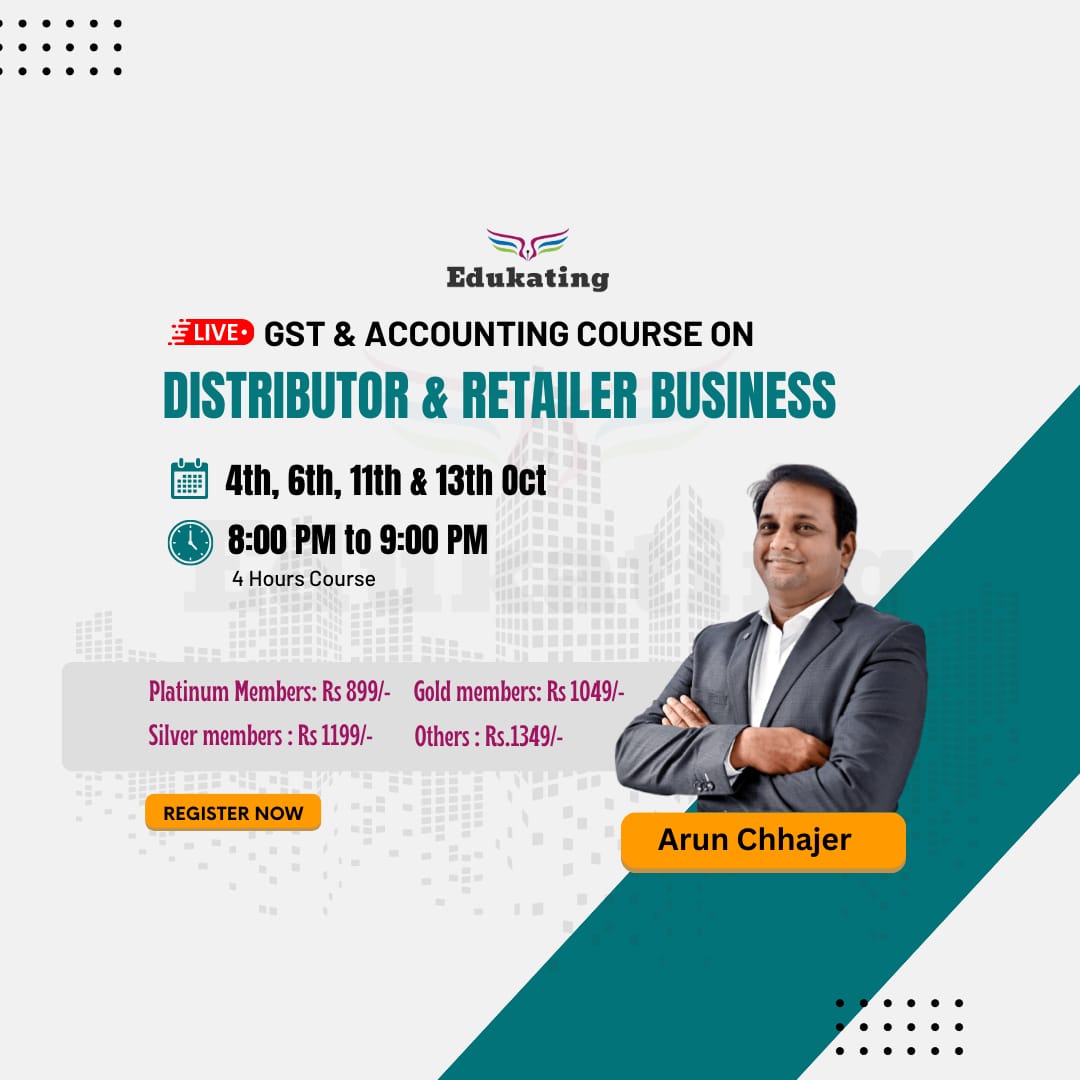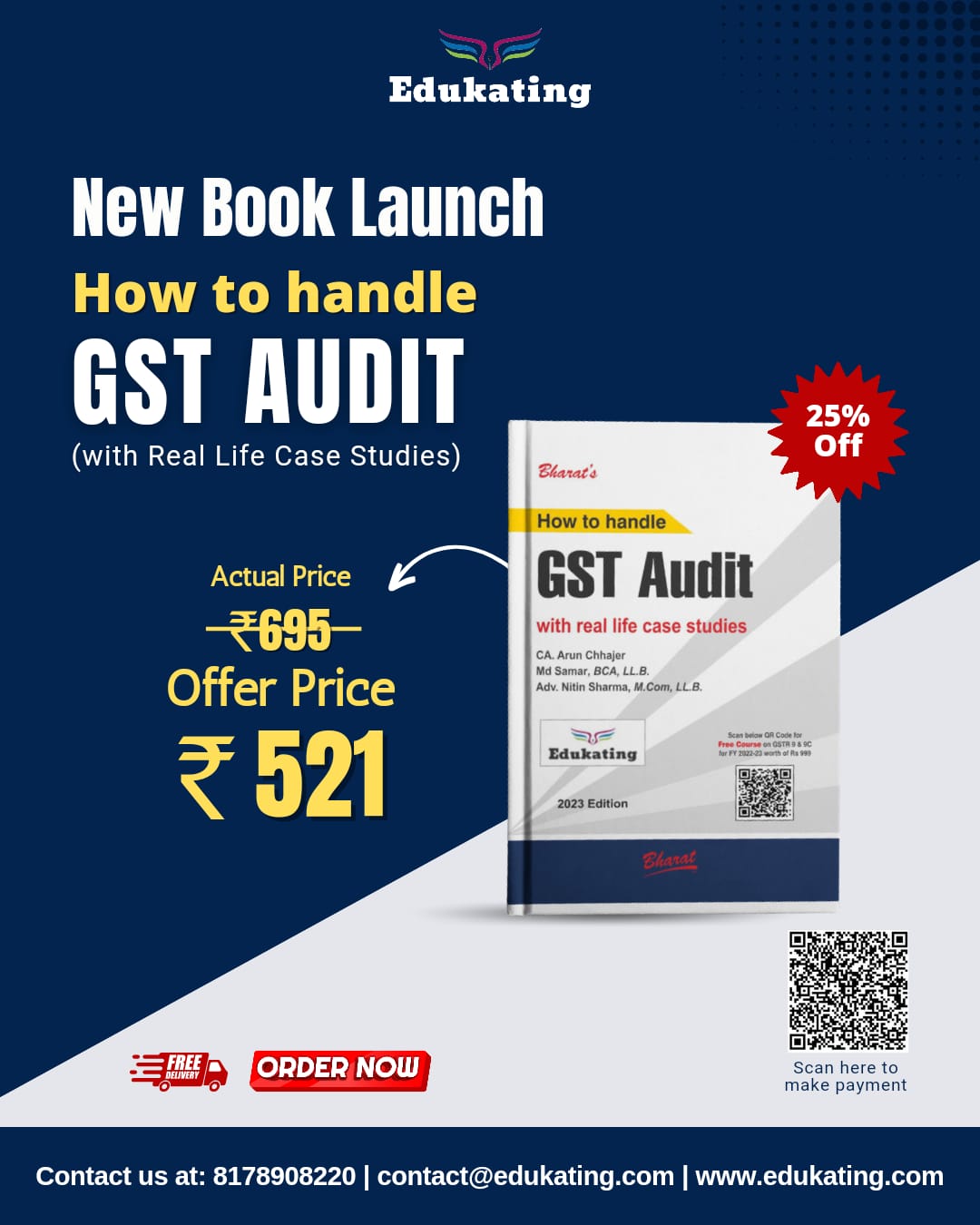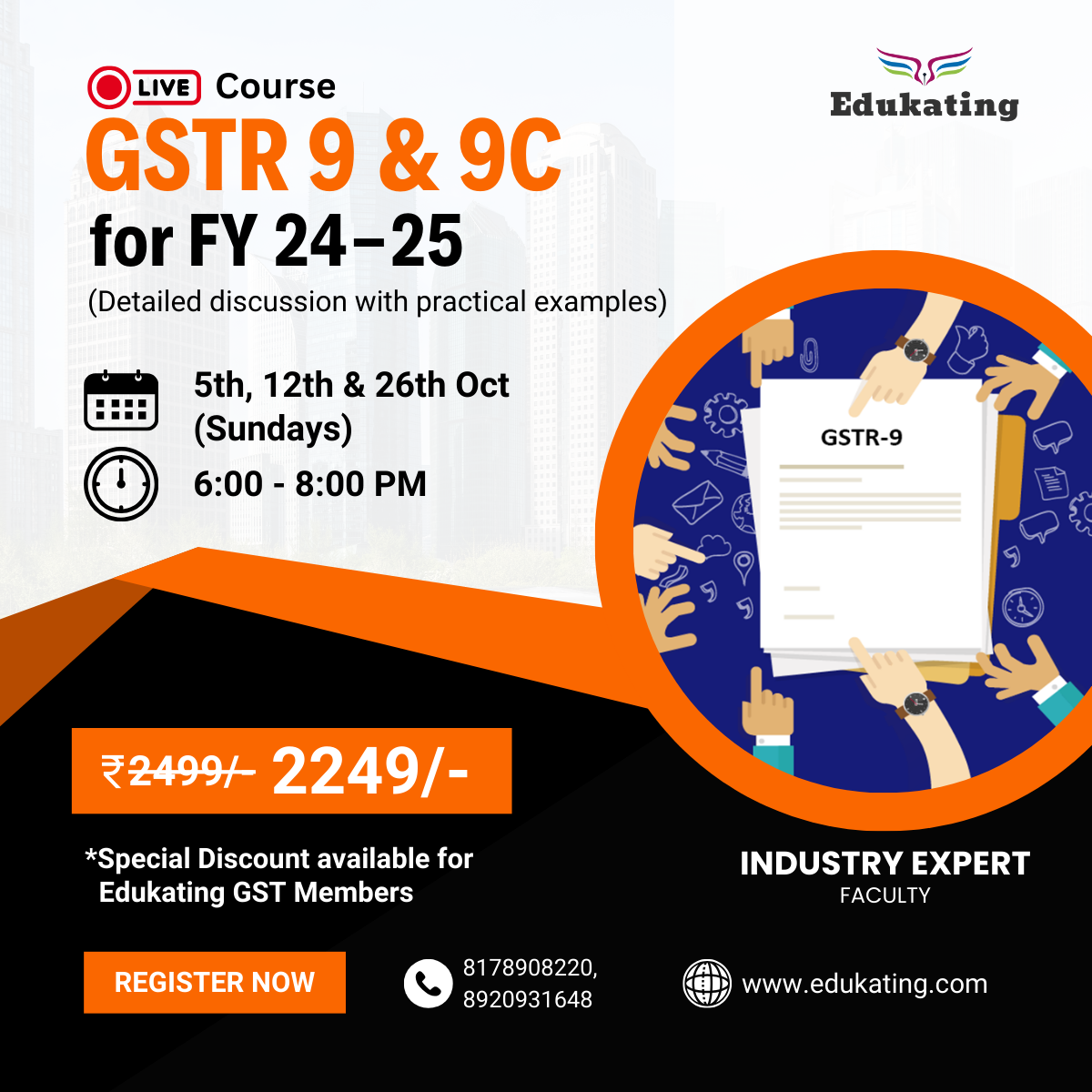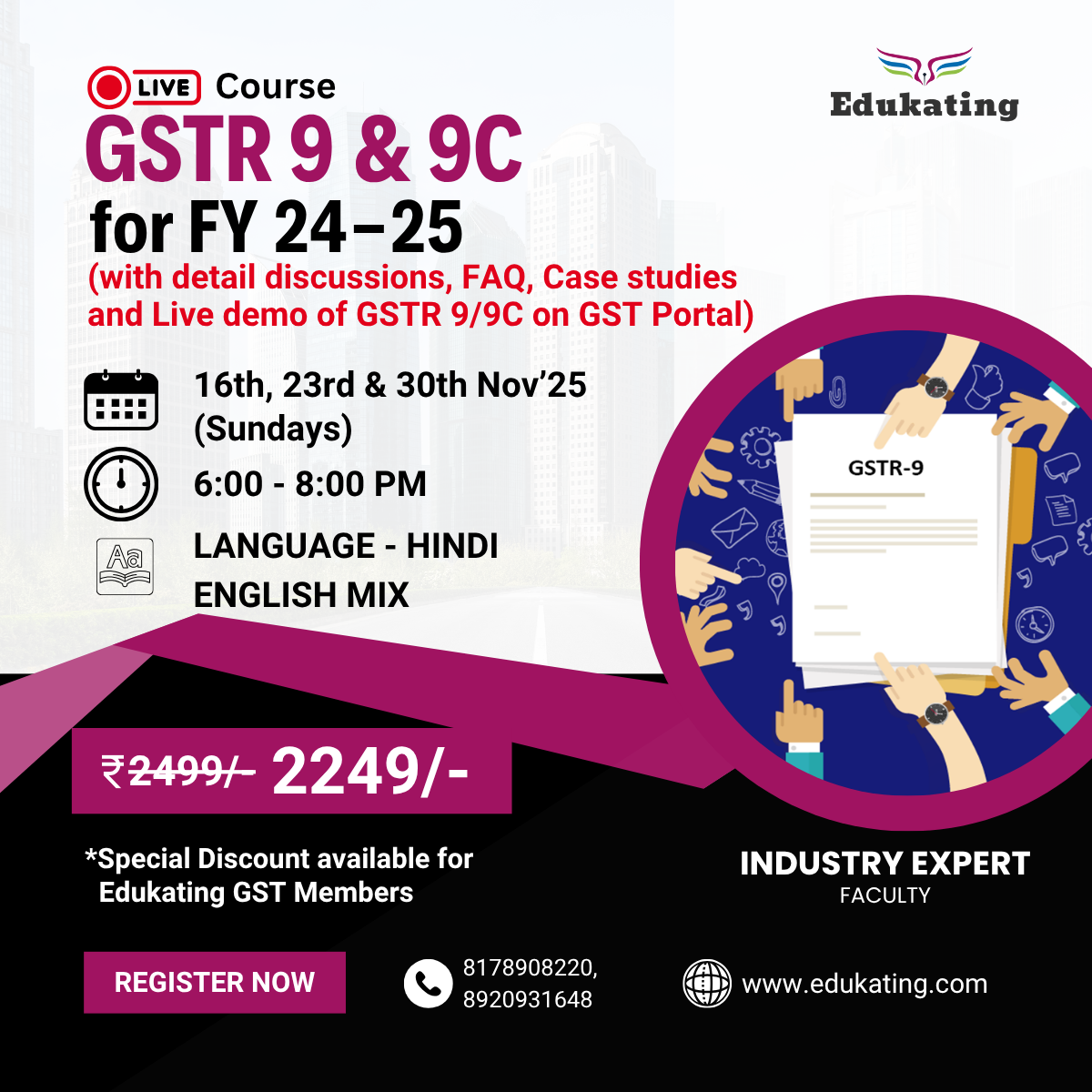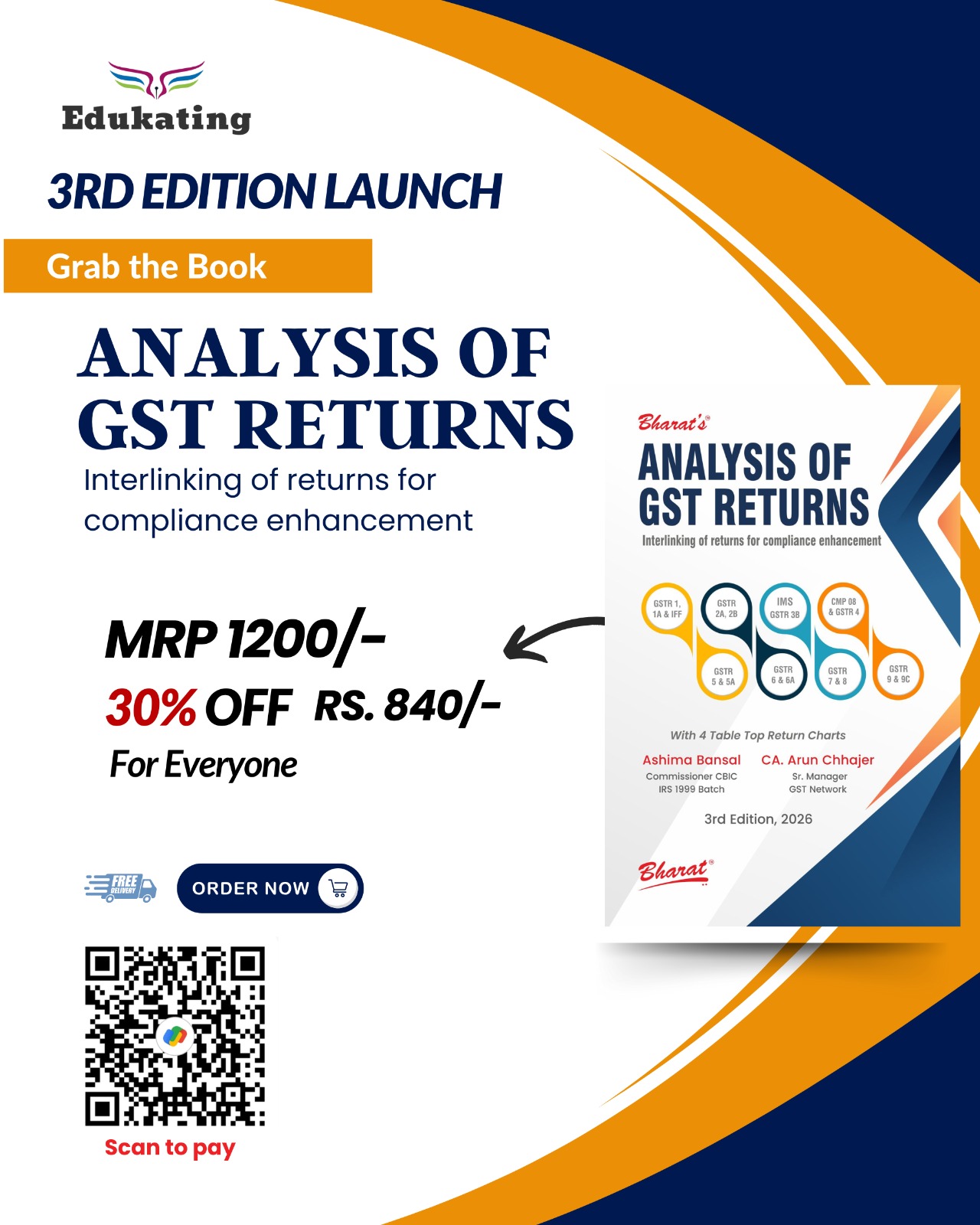E-Way Bill Under GST - An Overview
- What is an E-Way Bill?
E-Way bill is an electronic bill , which was made effective from April 1st 2018 to ensure inter state as well as intra state movement of goods between 2 or more parties where the consignment value of goods being transported exceeds Rs. 50,000 even if the purchase of goods is from an unregistered person by the registered person.
E-Way Bill can be generated on the E-Way bill portal and upon generation . An E-Way Bill number shall be generated. E-Way bill number will be available to the supplier , recipient and transporter.
- When should an E-Way bill be issued?
Rule 138(1) states that , every registered person who causes movement of goods of consignment value exceeding Rs. 50,000 :
(i) in relation to a supply ; or
(ii) for reasons other than supply ; or
(iii) due to inward supply from an unregistered person.
Shall before commencement of such movement , may furnish such information in Part A of Form GST EWB - 01 electronically on the common portal which such particulars as may be prescribed.
Where the distance to be covered to transport the goods is less than 50 kms. Within the place of business to the transporter to the place of business of the transporter for further transportation , the transporter may not furnish the details of conveyance of Part - B of Form GST EWB - 01.
- Are there any specific category of goods for which E-Way bill mandatorily be issued even if the consignment value of goods being transported does not exceed Rs. 50,000?
E-Way bill will have to be generated mandatorily for certain specific goods even if the consignment value of goods being transported does not exceed Rs. 50,000.
- Where there is Inter-State movement of goods to the job worker.
- In case of Inter-State transport of Handicraft goods by a dealer exempted from GST Registration.
- What is Consignment Value?
The consignment value of goods shall be the value, determined in accordance with the provisions of section 15, declared in an invoice, a bill of supply or a delivery challan, as the case may be, issued in respect of the said consignment and also includes the central tax, State or Union territory tax, integrated tax and cess charged, if any, in the document and shall exclude the value of exempt supply of goods where the invoice is issued in respect of both exempt and taxable supply of goods. [Explanation 2 of sub clause (1) of Rule 138 of CGST Rules , 2017]
- Who is liable to generate the E-Way Bill?
The E-way Bill can be generated by a Registered Supplier/recipient , Unregistered person or transporter.
Registered Person (Supplier / Receiver) : It is mandatory for a registered person to generate e-way bill if the consignment value of goods being transported exceeds Rs. 50,000. However , a registered person may choose to generate e-way bill even if the consignment value is less than the threshold limit of Rs. 50,000.
Unregistered Person : Unregistered persons are also required to generate E-way bill as per the provisions of GST Act. However when the supply is made from an unregistered person to a registered person , the recipient is responsible to check whether all the compliances have been met or not as if they were the supplier.
Transporter : Transporters carrying the goods via road , rail , air , etc. are also required to generate e-way bill if the same has not been generated by the supplier of the goods.
- What are the scenarios in which generating an E-Way Bill is not required?
In the following cases generation an e-way bill is not required [Rule 138(14)] :
- Where the goods being transported are specified in the annexure;
- Where the goods are being transported by a non motor vehicle;
- where the goods are being transported from the customs port, airport, air cargo complex and land customs station to an inland container depot or a container freight station for clearance by Customs;
- in respect of movement of goods within such areas as are Notified under clause (d) of sub-rule (14) of rule 138 of the State or Union territory Goods and Services Tax Rules in that particular State or Union territory;
- where the goods being transported are alcoholic liquor for human consumption, petroleum crude, high speed diesel, motor spirit (commonly known as petrol), natural gas or aviation turbine fuel;
- Where the goods being transported as no supply under Schedule III of CGST Act
- Where the goods are being transported :
- under customs bond from an inland container depot or a container freight station to a custom sport, airport, air cargo complex and land customs station, or from one customs station or customs port to another customs station or customs port, or
- under customs supervision or under customs seal;
- where empty cylinders for packing of liquefied petroleum gas are being moved for reasons other than supply;
- where the goods are being transported upto a distance of twenty kilometres from the place of the business of the consignor to a weighbridge for weighment or from the weighbridge back to the place of the business of the said consignor subject to the condition that the movement of goods is accompanied by a delivery challan issued in accordance with rule 55.
- where empty cargo containers are being transported;
- where the consignor of goods is the Central Government, Government of any State or a local authority for transport of goods by rail;
- Where the movement of goods caused is by defence formation under Ministry of defence as a consignor or consignee;
(7) What is the Validity of E-Way Bill?
An E-way Bill or a Consolidated E-Way bill , generated as per the provisions of Rule 138 for transport of goods within the country , shall be valid for the time period as follows [Rule 138(10) of CGST Rules , 2017] :
| S.No. | Distance | Validity Period |
| 1 | Upto 100 Km | One Day |
| 2 | For every 100 Km or part thereof thereafter | Additional One Day |
| 3 | Upto 20 Km | One Day |
| 4 | For every 20 Km or part thereof thereafter | Additional One Day |
The validity of the e-way bill may be extended within 8 hours from the time of its expiry. The validity of the E-Way bill from the date on which such bill has been generated and each day shall be counted as 24 hours.
The e-way bill generated under rule 138 of the Goods and Services Tax Rules of any State or Union territory shall be valid in every State and Union territory.[Rule 138(13) of CGST Rules]
(8) What are the documents to be carried on by the person in-charge of conveyance?
As per Rule 138A of CGST Rules , the person in-charge of the conveyance shall carry -
- the invoice or bill of supply or delivery challan, as the case may be; and
- a copy of the e-way bill in physical form or the e-way bill number in electronic form or mapped to a Radio Frequency Identification Device embedded on to the conveyance in such manner as may be notified by the Commissioner.
The requirement of carrying the above goods shall not apply in case of movement of goods by rail or air or vessel.
(9) To whom the details of the e-way bill will be available once the same has been generated?
Once the e-way bill is generated , the details of the same will be available to :
- supplier, if registered, where the information in Part A of FORM GST EWB-01 has been furnished by the recipient or the transporter; or
- recipient, if registered, where the information in Part A of FORM GST EWB-01 has been furnished by the supplier or the transporter,
The details of the generated E-Way bill shall be available on the common portal. The Recipient/supplier , as the shall communicate his acceptance or rejection of the consignment covered by the e-way bill. [Rule 138(11)]
In case if no communication of acceptance / rejection has been made within 72 hours of the details being made available to the concerned person on the portal or the date of delivery of goods whichever is earlier , it shall be deemed that the details have been accepted by such person.
(10) What is the role of the transporter , in case the E-Way bill has not been generated by the Consignor / Consignee?
Rule 138(7) : When the E-Way bill has not been generated by the Consignor / Consignee and the value of goods in the conveyance exceeds Rs. Fifty Thousand , the transporter shall generate the e-way bill in FORM GST EWB-01 on the basis of invoice or bill of supply or delivery challan, as the case may be, and may also generate a consolidated e-way bill in FORM GST EWB-02 on the common portal prior to the movement of goods.
Rule 138(7) shall not be applicable in the cases where the goods are being transported via railways, air and vessel.
(11) What will be the provision where the goods for which e-way bill has been generated are transferred from one conveyance to another?
Where the goods are transferred from one conveyance to another, the consignor or the recipient, who has provided information in Part A of the FORM GST EWB-01, or the transporter shall, before such transfer and further movement of goods, update the details of conveyance in the e-way bill on the common portal in Part B of FORM GST EWB-01. [Rule 138(5)]
This will not be applicable where the distance between the place of the business of the transporter and that of the consignee does not exceed 50 Kms.
The consignor or the recipient, who has furnished the information in Part A of FORM GST EWB-01 , or the transporter , may assign the e-way bill number to another registered or enrolled transporter for updating the information in Part B of FORM GST EWB-01 for further movement of the consignment.
(12) What are the scenarios in which a generated E-Way bill stands cancelled ?
Where an e-way bill has been generated under this rule, but goods are either not transported or are not transported as per the details furnished in the e-waybill, the e-way bill may be cancelled electronically on the common portal within twenty four hours of generation of the e-way bill.[Rule 138(9)]
However , an e-way bill cannot be cancelled if it has been verified in transit in accordance with the provisions of Rule 138B.
(13) What are the consequences of not generating an e-way bill when required mandatorily?
Moving the goods without an e-way bill when the conveyance value exceeds Rs. 50,000 , constitutes an offence and attracts a penalty of
Rs. 10,000 or tax sought to be evaded , whichever is higher.




